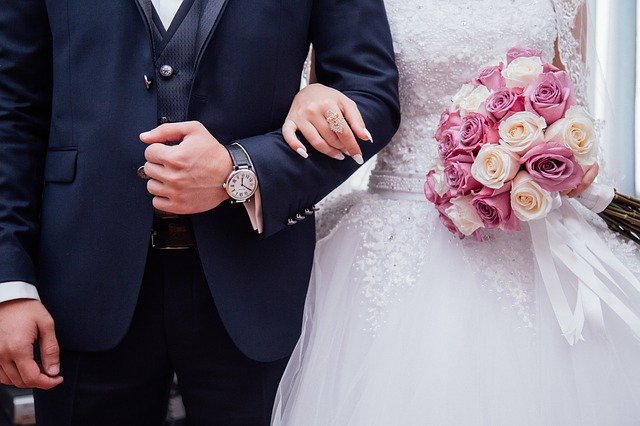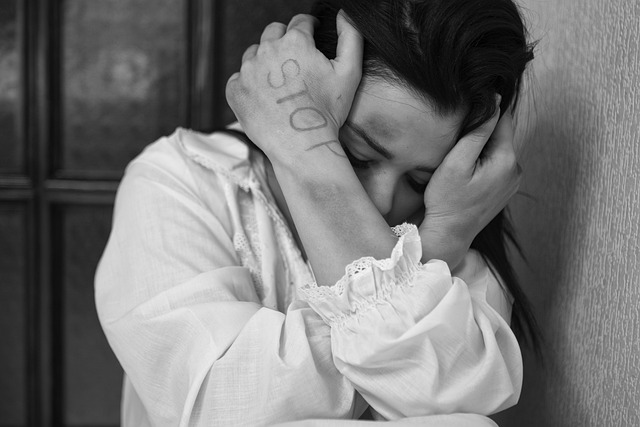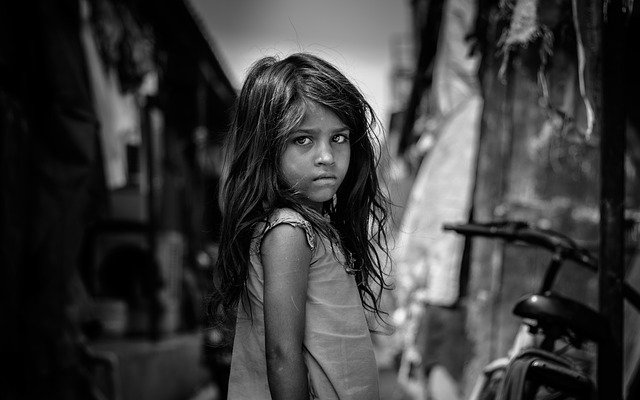Forced marriage – a form of human trafficking. But what’s the difference between this and arranged marriage? Does this form of deprivation of liberty happen in Austria too? An informative investigation, and contact addresses for anyone affected who is seeking help.
FORCED MARRIAGE, CHILD MARRIAGE OR ARRANGED MARRIAGE?

When we talk of “forced marriage”, we mean a marriage in which one or both of the parties affected are married without their consent, or against their will. A marriage can also become a forced marriage later on if both parties initially enter into it with their full consent, but one or both of them are then forced, against their will, to remain in the marriage. Forced marriage falls under the crime of human trafficking, due to the human rights violations involved. Often, a series of coercive measures will be applied to force the marriage. These can range from physical violence to more subtle methods of psychological and financial pressure.
Another form of forced marriage is child marriage, when at least one of the persons involved is still under-age. According to ECPAT, children are particularly at risk of being impacted by forced marriage. The victims of forced marriage are almost always women and girls under 18 years of age. More than 39,00 of these female victims are forced to get married in this way every single day.
A forced marriage also differs from an arranged marriage in other ways, however. In an arranged marriage, it is assumed that both parties have consented to their parents or another intermediary supporting them in searching for and selecting a marriage partner. It can often be far from clear where forced marriage ends and arranged marriage begins, and the reality is more usually a combination of the two.
THE PROBLEM OF FORCED MARRIAGE

Forced marriage is considered a form of violence, as it often occurs in combination with other criminal offences. Marriage against the will of that person is coercion. Victims will be coerced to marry someone, often a person they do not even know. Forced marriage often also involves abduction, and constitutes deprivation of liberty. In Austria, forced marriage often happens in the victims’ home countries. Occasionally, this involves young girls being abducted and taken abroad, where they are married before being able to return to Austria. Victims of forced marriage usually also suffer sexual violence. If the women affected refuse sexual intercourse, it can, in the worst cases, also lead to rape. Situations such as these often lead to the victims being deeply traumatised. Both before and during such a marriage, most victims will also be exposed to physical violence. This can be used as a method of exerting pressure before the marriage, but the women affected usually continue to experience physical violence at the hands of their partners throughout the marriage.
The consequences of a forced marriage are usually devastating for those affected. Due to the sexual and physical violence involved, marriages of this sort can have grave consequences for the health of the women and girls. Early pregnancy, depression, suicidal thoughts and physical injuries are just some of the consequences. As well as this, the victim is restricted not only in her personal freedom, but also strongly from the perspective of her right to life and an education.
WHERE DO CHILD AND FORCED MARRIAGES HAPPEN?

The majority of victims, who marry before their 18th birthday, live in South Asia and sub-Saharan Africa. Often, anything up to half of all women in these regions are married early. According to Plan International, for example, some 76% of women in Niger are married before their 18th birthday, with as many as 28% married before they reach 15. Forced marriages take place across the world, however. They often happen in countries where the rights of children and women are already severely restricted.
Forced marriages can also be found in Austria, with some 200 cases coming to light every year. In 2020 alone, 123 women registered with the organisation Orient Express seeking help in cases of this nature. 23 of these were under-age. The advice centre assumes these estimated numbers could still go far higher, however.
If you or someone you know are in a situation of this sort, you can get help by contacting the following organisations:
Verein Orient Express
Austria-wide coordination point against abduction and forced marriage
Tel.: 01/728 97 25
E-mail: office@orientexpress-wien.com
Intervention centres/violence protection centres in Austrian provinces nationwide
Women’s helpline against violence
Tel.: 0800 222 555
Point of contact for teenage boys and men affected
www.dmoe-info.at/ueber_uns/organisation
